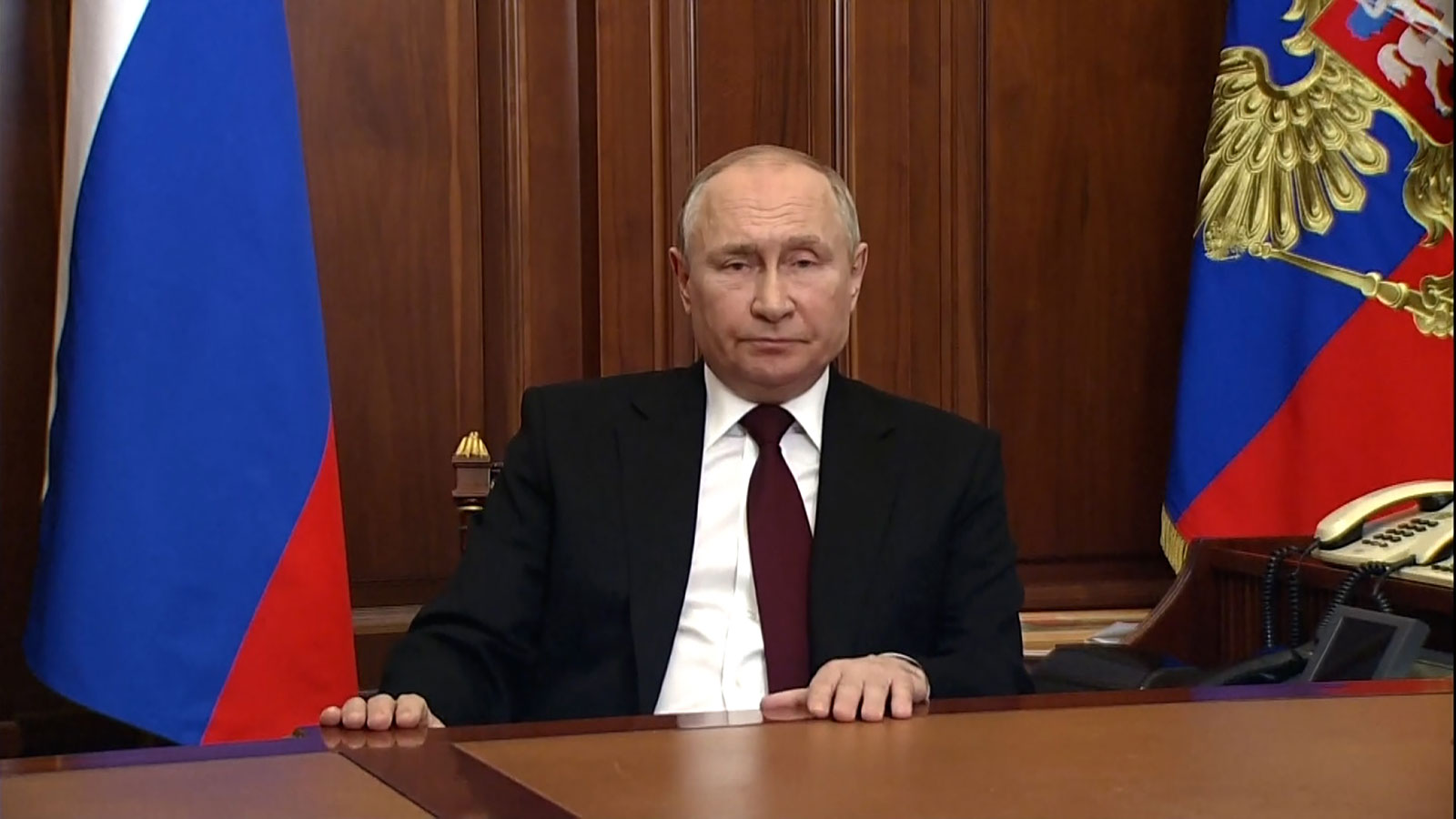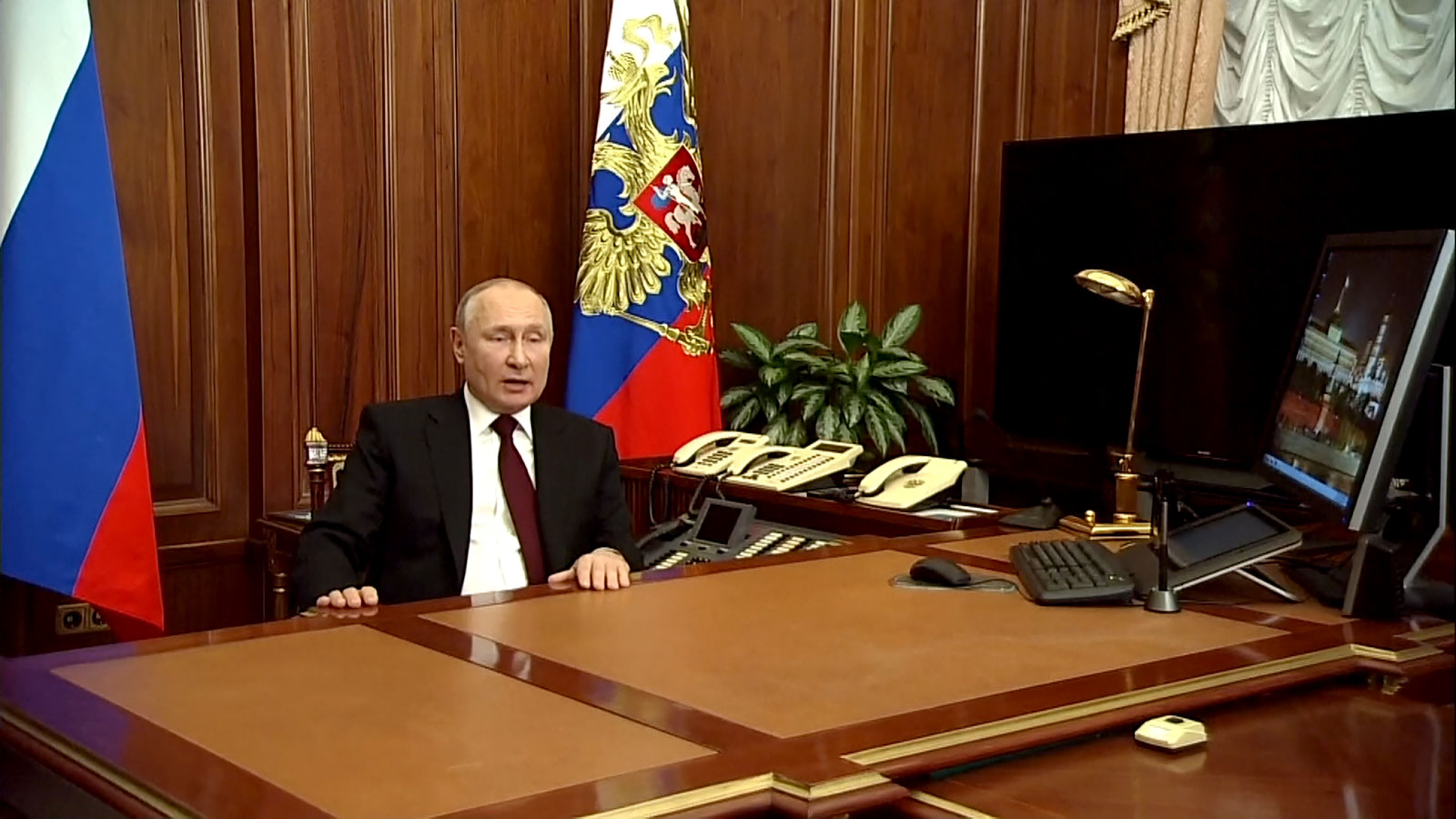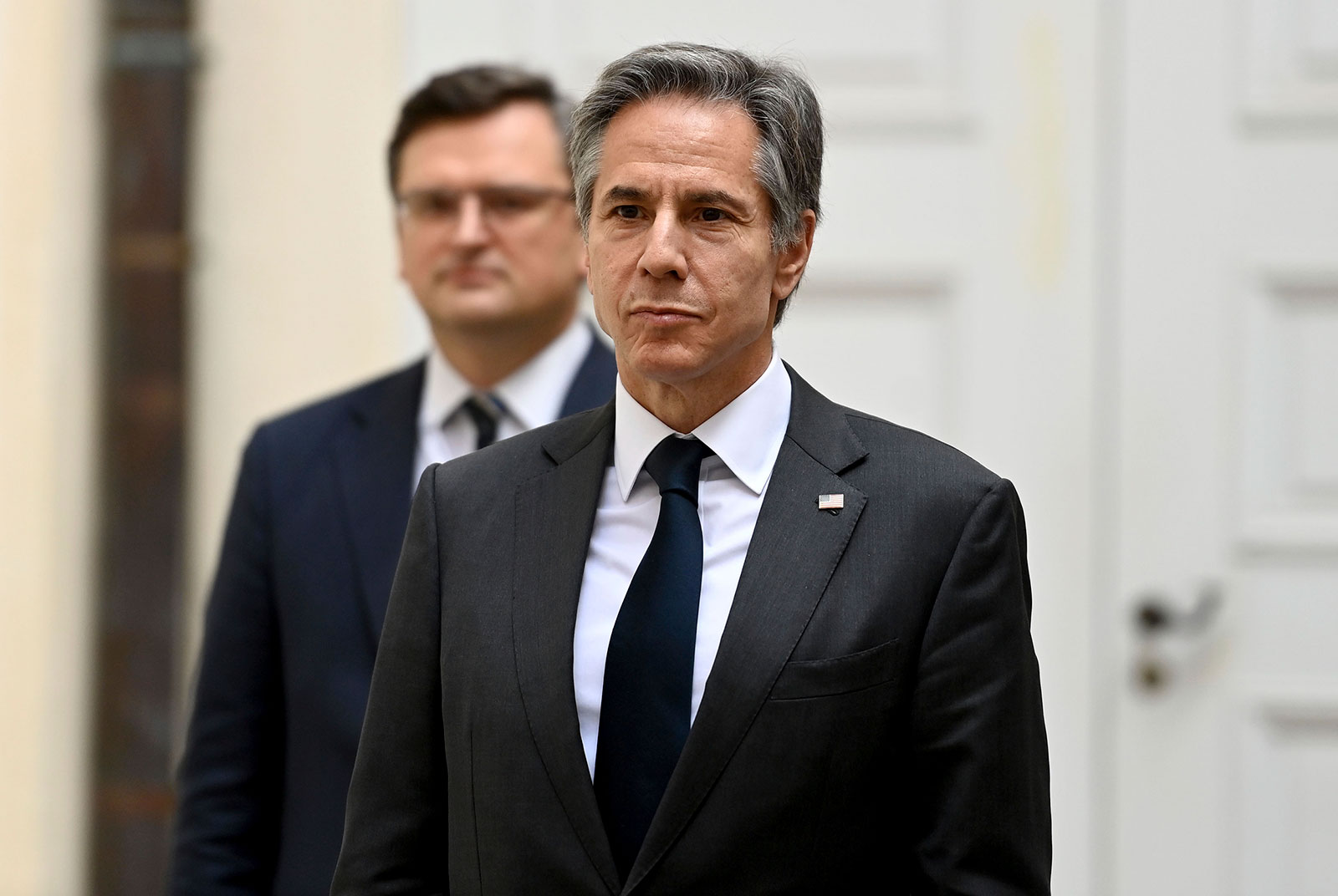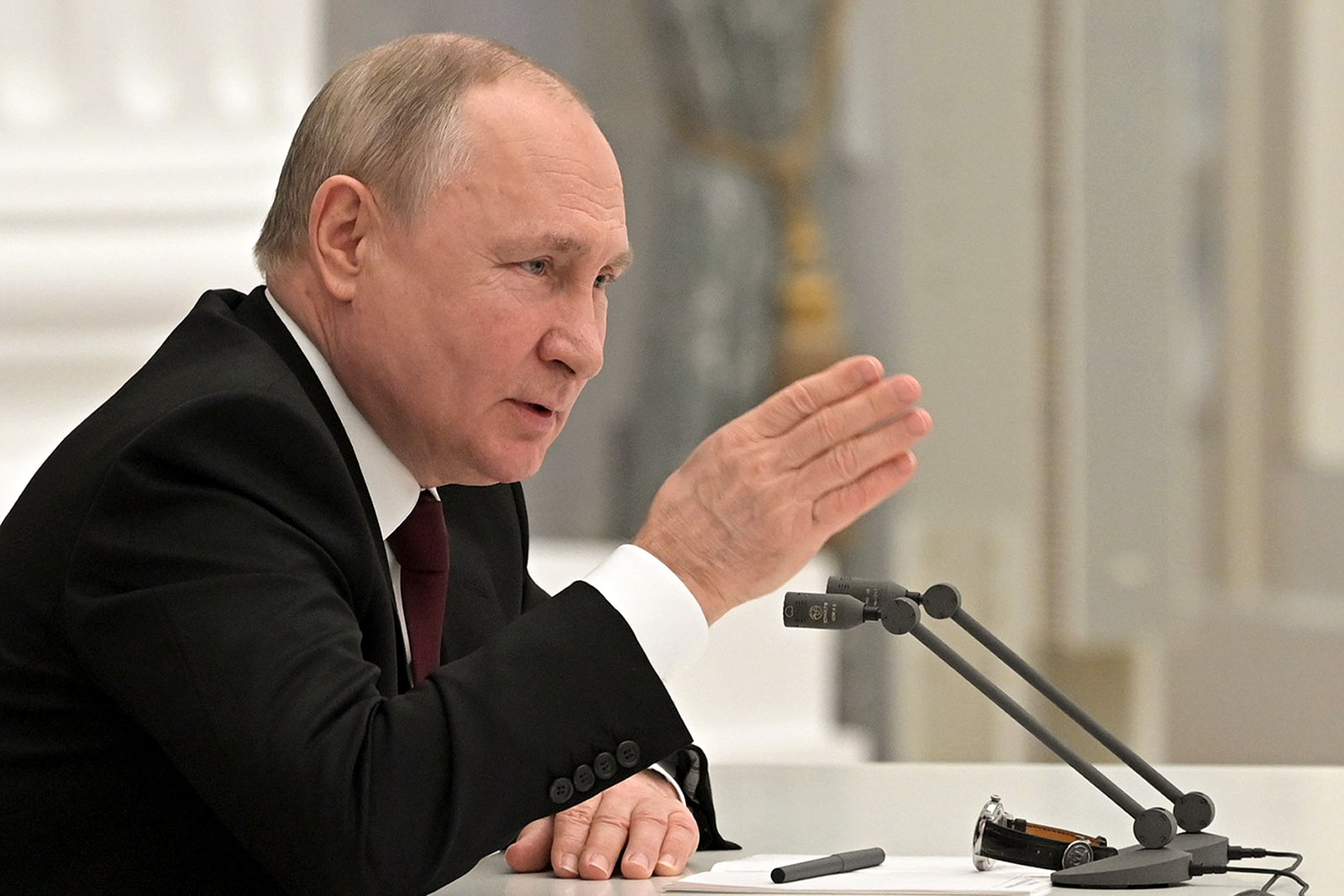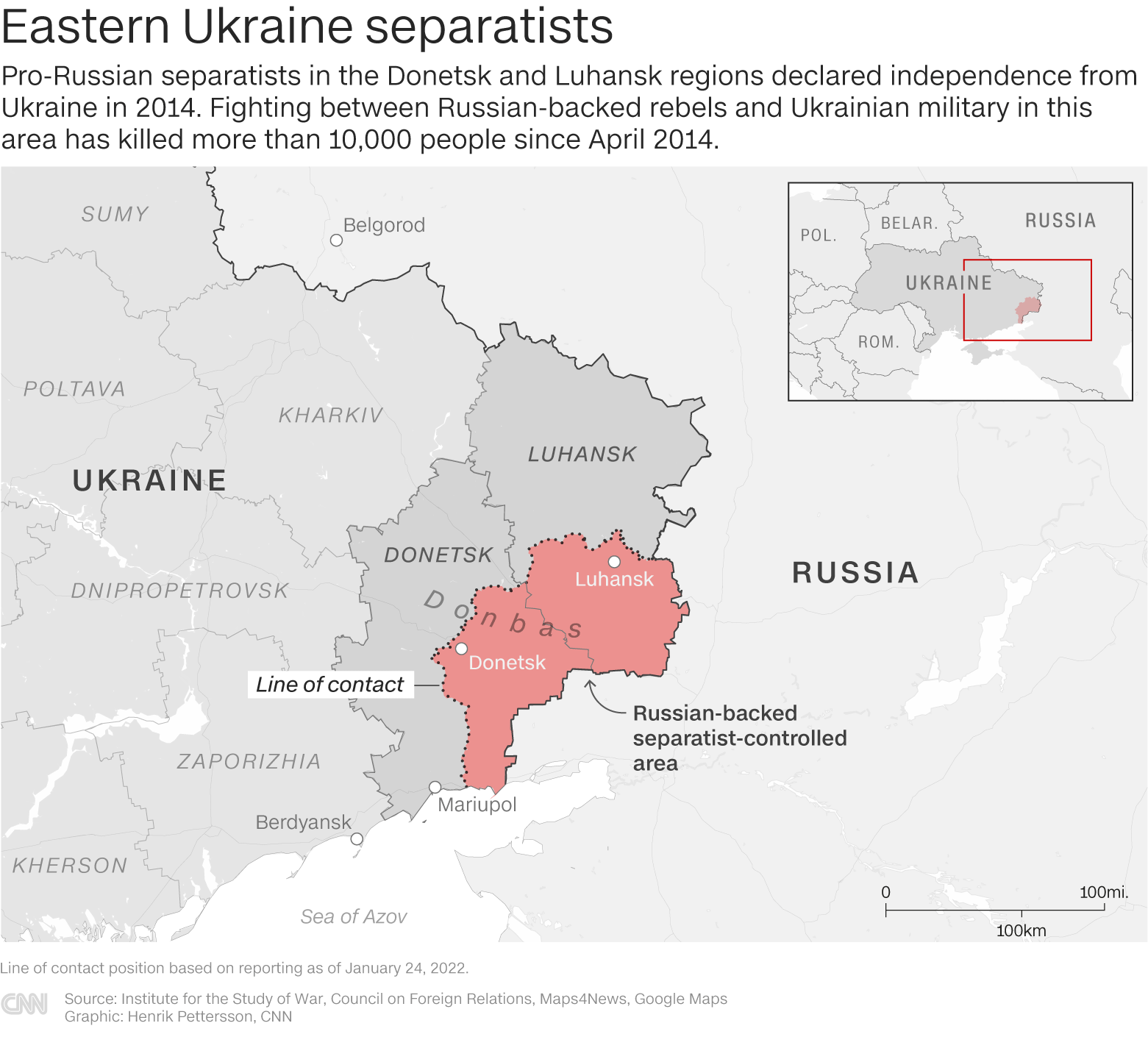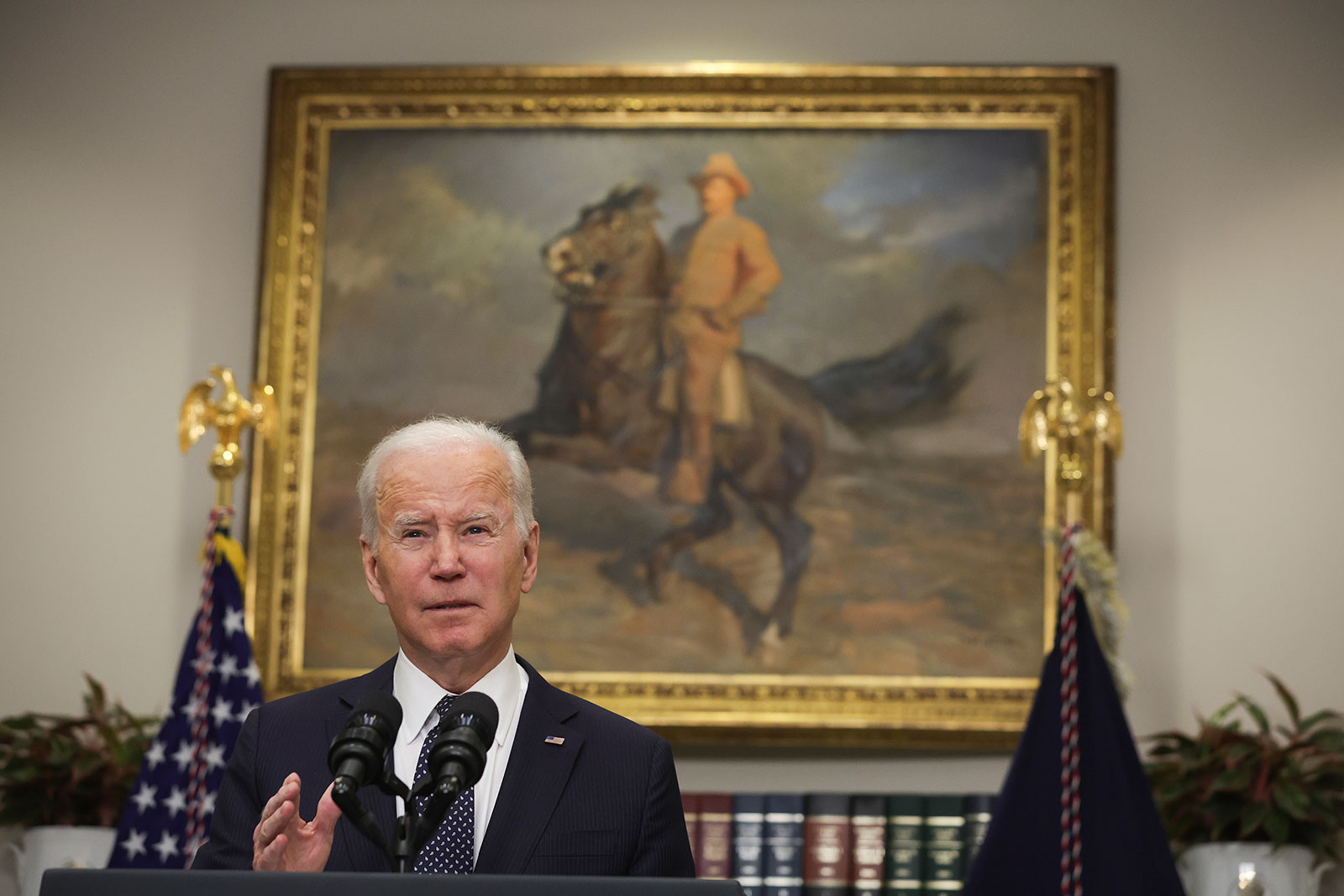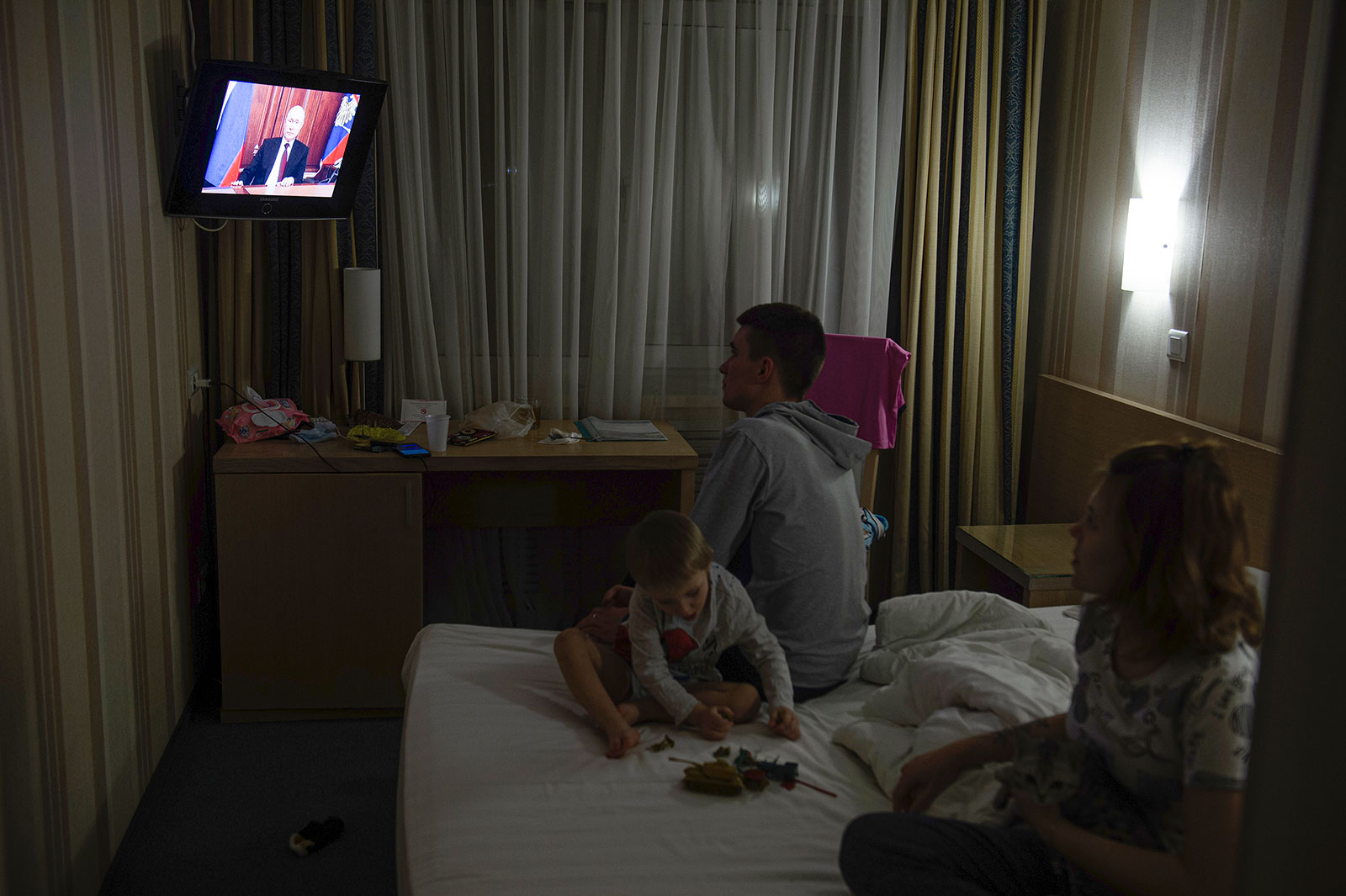
Russian President Vladimir Putin signed decrees recognizing the Donetsk People's Republic and the Luhansk People's Republic Monday in a ceremony carried on state television.
Earlier in the day, the heads of the self-proclaimed pro-Russian republics requested the Kremlin leader recognize their independence and sovereignty.
Members of Putin's Security Council supported the initiative in a meeting the same day.
Putin directed parliament to recognize the separatist regions and ratify treaties of friendship, following a lengthy address in which he accused the US and NATO of attempting to turn Ukraine into a military outpost to threaten Russia.
"I consider it necessary to make a long overdue decision: to immediately recognize the independence and sovereignty of the Donetsk People's Republic and the Luhansk People's Republic," Putin said.
"I ask the Federal Assembly of the Russian Federation to support this decision, and then to ratify the treaties of friendship and mutual assistance with both republics. These two documents will be prepared and signed in the very near future. And from those who seized and hold power in Kyiv, we demand an immediate cessation of hostilities. Otherwise, all responsibility for the possible continuation of the bloodshed will be entirely on the conscience of the regime ruling on the territory of Ukraine," he continued.
"Announcing the decisions taken today, I am confident in the support of the citizens of Russia and all the patriotic forces of the country. Thank you for your attention," the Russian leader added.
You can read more here about the separatist regions and why they have become a key part of the Ukraine-Russia crisis.
